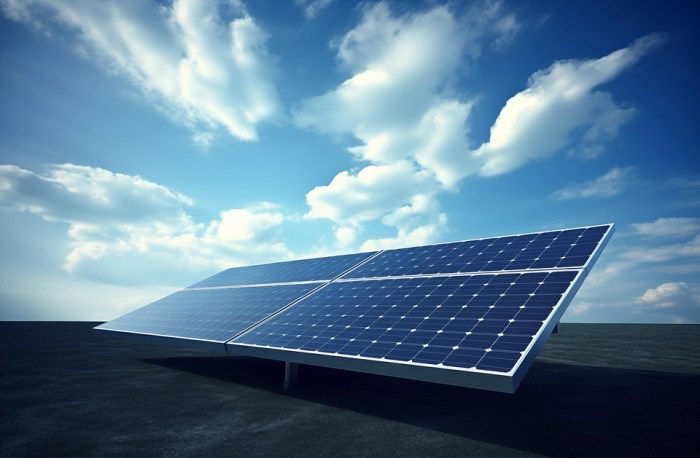AI solar power solution stands at the forefront of modern energy innovation, merging advanced artificial intelligence with solar technology to revolutionize how we harness and manage solar energy. This integration not only enhances energy production efficiency but also offers predictive capabilities that lead to smarter energy management systems.
By leveraging AI, solar power systems can optimize performance, forecast energy output accurately, and adapt to changing environmental conditions, thereby maximizing their potential. The synergy of AI and solar power presents a transformative approach to energy sustainability, paving the way for a cleaner and more efficient future.
Introduction to AI Solar Power Solutions
AI solar power solutions represent a transformative approach to the generation and management of solar energy. By integrating artificial intelligence (AI) into solar technologies, these solutions optimize the efficiency and effectiveness of solar power systems. The significance of this integration lies in its ability to enhance energy production, reduce costs, and contribute to a more sustainable energy landscape.
Incorporating AI into solar power technology allows for real-time data analysis, streamlined operations, and predictive maintenance, ensuring systems run at peak efficiency. The combination of AI with solar energy systems brings numerous benefits, including improved forecasting accuracy, enhanced energy management, and reduced operational costs, ultimately positioning solar energy as a more viable and efficient alternative in modern energy systems.
Technological Advances in AI Solar Power
Recent technological advancements in AI algorithms have significantly optimized solar energy production. These innovations focus on improving the efficiency of solar panels through advanced data analytics and machine learning techniques.
- AI-driven algorithms enable the real-time adjustment of solar panel angles, maximizing sunlight exposure throughout the day.
- Improvements in solar panel efficiency have been documented in projects where AI systems analyze weather patterns and historical data to predict optimal energy output.
- Machine learning can enhance solar forecasting by analyzing vast datasets to predict energy production more accurately, leading to better energy management and grid stability.
Implementation Strategies for AI in Solar Power
Integrating AI technologies into existing solar power systems requires careful planning and execution. Here is a step-by-step guide to facilitate this integration:
- Assess the current solar power system and identify areas where AI can enhance efficiency.
- Choose the right AI tools and software that align with specific energy goals.
- Train staff and stakeholders on AI technologies to ensure smooth implementation.
- Continuously monitor performance and refine AI algorithms based on real-time data.
The successful implementation of AI solar solutions heavily relies on data analytics. It serves as the backbone for making informed decisions, optimizing resource allocation, and improving overall system performance.
Case Studies of Successful AI Solar Power Solutions

Several notable projects illustrate the profound impact of AI on solar energy efficiency. For instance, a project in California utilized AI technologies to adjust solar panel orientations dynamically, resulting in a 20% increase in energy production.
The methodologies employed in these case studies often involve the use of advanced machine learning models and historical data analysis to refine energy output predictions and operational strategies. The outcomes reveal significant efficiency gains, cost savings, and valuable lessons about the integration of AI in solar energy operations.
Challenges and Limitations of AI in Solar Power
Despite the promising benefits, several challenges hinder the implementation of AI solutions within solar energy systems. These obstacles can include data privacy concerns, the high cost of technology adoption, and the need for skilled personnel to operate and maintain AI systems.
The limitations of current AI technologies in the solar industry include:
- Dependence on high-quality data, which may not always be available.
- Integration challenges with legacy solar systems that were not designed for AI technologies.
- Potential biases in AI algorithms that can lead to inefficiencies or mismanagement of energy distribution.
Experiences from organizations that faced these challenges highlight the necessity for strategic planning and resource allocation to overcome barriers in AI integration.
Future Trends in AI Solar Power Solutions

The future of AI applications in solar energy is promising, with several emerging trends expected to shape the industry.
- Increasing use of autonomous drones for solar panel inspections and maintenance.
- Advancements in AI algorithms that enhance predictive modeling for solar energy production.
- Integration of AI with energy storage systems to optimize energy distribution and usage.
These trends will have significant implications for the renewable energy sector, driving innovation and promoting the adoption of sustainable energy solutions.
Policy and Regulatory Considerations
Key regulations play a crucial role in the deployment of AI in solar power solutions. Governmental policies can either support advancements through incentives and research funding or hinder progress through restrictive measures.
Stakeholders are encouraged to navigate the regulatory landscape effectively by:
- Staying informed about new legislation affecting renewable energy initiatives.
- Engaging with policymakers to advocate for supportive regulations.
- Collaborating with industry groups to share best practices and foster innovation.
These considerations are vital for ensuring that the potential of AI in solar energy can be fully realized.
Community and Global Impact

AI solar power solutions have the potential to address energy poverty in underserved communities worldwide. By leveraging AI, initiatives can optimize energy distribution, making solar power more accessible and affordable.
Global initiatives that utilize AI in solar energy aim to enhance environmental benefits, such as reducing carbon emissions and promoting sustainable practices. The socio-economic impacts of adopting AI in solar power on a larger scale can lead to job creation, energy independence, and improved quality of life for countless individuals.
Conclusion: AI Solar Power Solution
In summary, the evolution of AI solar power solutions demonstrates that the future of energy generation is not just about harnessing natural resources but also about smart technologies that amplify these efforts. As we embrace these innovations, the impact on energy efficiency, environmental sustainability, and economic growth becomes increasingly significant, shaping a brighter future for the renewable energy landscape.
